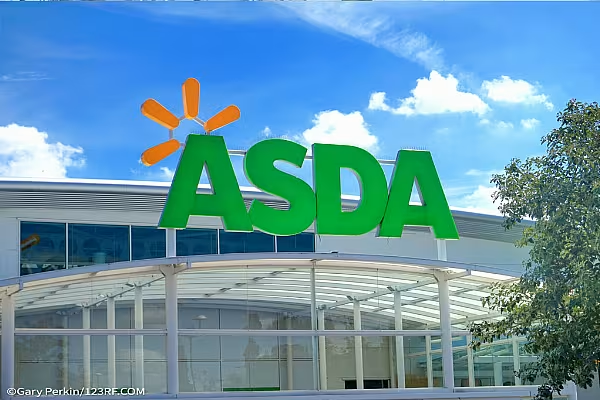British supermarket group Asda, bought by Zuber and Mohsin Issa and private equity group TDR Capital from Walmart in February, said on Thursday underlying sales growth accelerated in its latest quarter.
The group said like-for-like sales, excluding fuel, rose 7.3% year-on-year in its first quarter to 31 March, versus a growth of 5.1% in the previous quarter.
The growth was driven by non-food categories and online shopping during a third period of national lockdown measures to stem the COVID-19 virus, which included the closure of non-essential shops.
Like-for-like clothing sales increased by 31% and general merchandise sales by 39%, with a rise in demand for outdoor furniture, BBQs and garden accessories. Total digital sales rose 88%.
Growth Drivers
"Whilst the closure of non-essential retail during the first quarter helped stimulate demand, our constant focus on keeping prices low, providing great quality products and developing in-store partnerships with ... brands such as B&Q, The Entertainer and Greggs, continues to resonate with customers," said CEO Roger Burnley, who is leaving the group next year.
He added, "Although the pandemic is not over yet, there are signs that our customers are feeling much more optimistic about the future, with almost 60% of those we recently spoke to saying they are looking forward to a summer of socialising with friends and family."
Annual Performance
Asda also reported results for 2020, when it was under Walmart's full ownership.
Total sales, excluding fuel, increased 3.6% to £20.2 billion ($28.6 billion), with like-for-like sales up 3.5%.
However, operating profit fell 16.7% to £486.5 million, mainly due to COVID-related costs.
All three of Asda's main British rivals - Tesco, Sainsbury's and Morrisons have reported big annual profit falls.
Asda's accounts also showed that dividend payments were made to Walmart during the year comprising £1.65 billion in cash and a dividend in specie (or reconciliation of inter-company borrowings) of £1.27 billion.
The Issas/TDR purchase of Asda is still subject to final regulatory approval by Britain's competition regulator. Walmart retains a minority stake.
News by Reuters, edited by ESM. For more Retail news, click here. Click subscribe to sign up to ESM: European Supermarket Magazine.













